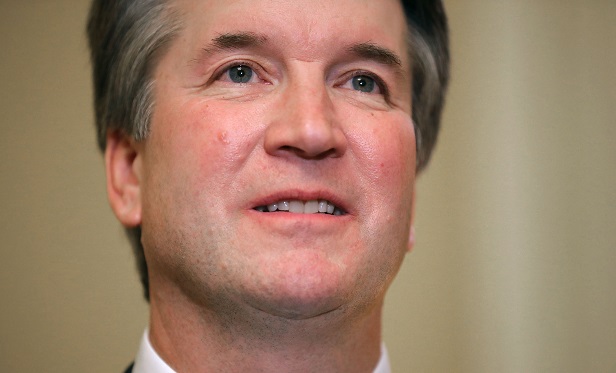 It's no wonder that organized labor was hostile to Kavanaugh's nomination; the judge has often sided with employers in disputes with unions. (Photo: Chip Somodevilla/Pool via Bloomberg)
It's no wonder that organized labor was hostile to Kavanaugh's nomination; the judge has often sided with employers in disputes with unions. (Photo: Chip Somodevilla/Pool via Bloomberg)
If the bitter fight between Democrats and Republicans over Brett Kavanaugh's nomination to the Supreme Court didn't make it clear, the newest member of the high court is expected to be a reliable member of the court's five-member conservative bloc.
But what does that mean, specifically, from the perspective of employers? Kavanaugh's record as a judge generally tilts in favor of employers, although he has on occasion delivered decisions that have favored employees.
Related: Where does Brett Kavanaugh stand on health care issues?
It's no wonder that organized labor was hostile to Kavanaugh's nomination. The judge has often sided with employers in disputes with unions.
As a member of the U.S. Court of Appeals for the District of Columbia, Kavanaugh joined a ruling in favor of an employer that had disciplined customer-facing employees who had worn union t-shirts on the job that disparaged the employer, AT&T. Although federal law typically protects the rights of workers to wear union garb at work, Kavanaugh wrote that there were reasonable exceptions if the employer believed the clothing was harming its image.
In a case where his colleagues ruled that undocumented workers have the same collective bargaining rights as other employees, Kavanaugh dissented, writing that federal union protections do not necessarily extend to undocumented immigrants.
In another union-related case that likely improved his chances of serving on the Supreme Court far more than he realized at the time, Kavanaugh ruled in favor of the Trump Organization, agreeing with the company that a union election should be overturned because it had been unfairly biased by politicians.
In 2007, the court of appeals ruled in favor of a union that had accused a furniture manufacture of creating a separate corporate entity to evade unionization. Kavanaugh dissented.
Kavanaugh also dissented in a 2016 case where the court upheld a finding by OSHA against SeaWorld after one of its killer-whales killed two trainers. While the majority concluded that OSHA had reasonably determined that SeaWorld had not taken necessary precautions to provide a safe work environment for their employees, Kavanaugh argued that the trainers had chosen a dangerous profession and that the majority was straying from its authority in trying to protect people from themselves.
One notable exception to the trend is an opinion from Kavanaugh regarding employment discrimination. In 2013, Kavanaugh joined the majority in ruling in favor of an employee who sued his former employer, Fannie Mae, alleging that he had been unfairly treated on the basis of race. The plaintiff, who is African American, specifically alleged that a supervisor had called him the n-word.
“It may be difficult to fully catalogue the various verbal insults and epithets that by themselves could create a hostile work environment,” wrote Kavanaugh. “And there may be close cases at the margins. But, in my view, being called the n-word by a supervisor—as Ayissi-Etoh alleges happened to him—suffices by itself to establish a racially hostile work environment.”
Read more about the current regulatory environment:
© 2025 ALM Global, LLC, All Rights Reserved. Request academic re-use from www.copyright.com. All other uses, submit a request to [email protected]. For more information visit Asset & Logo Licensing.







